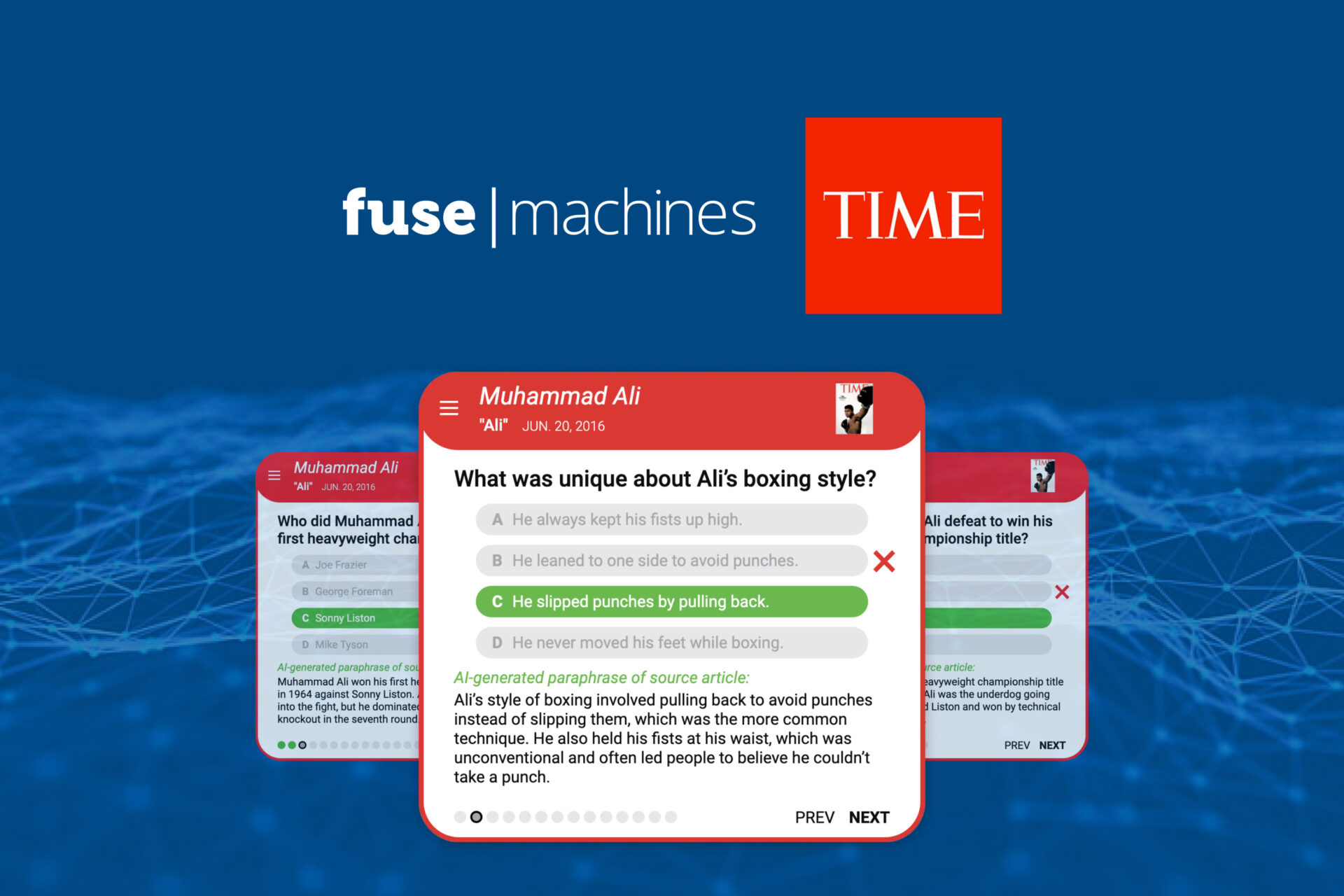Three Ways COVID-19 Made AI Relevant for Corporations
As digital transformation takes hold, organizations globally are looking to use technology to accelerate business growth, and many real-world examples of technology-enabled workflow efficiencies and cross-collaboration came to light in the wake of the pandemic. Artificial Intelligence (AI) is one of those technologies that helped businesses as they struggled to stay afloat.
AI’s ability to deliver predictive insights and automation-fueled efficiencies create tangible impact. Researchers at the University of York conducted a study consisting of interviews with leading academics, decision-makers and thought-leaders to discover how the pandemic changed the role of technology in our everyday lives.
Increased awareness around the technology underscored the need to generate trustworthy and ethical AI systems. In a survey conducted by IBM, only 40% of respondents (including consumers, citizens and employees) trusted companies to be responsible in their use of AI.
While most businesses are yet to fully embrace AI as they gauge its value, key themes have emerged around how corporations are looking at AI.
Organizations Leveraged AI to Stay Afloat in the Pandemic and Beyond
Revenue was the first thing the pandemic created a negative impact on, but AI came to the rescue. A recent study from Anglia Ruskin University found that AI apps shielded small and medium-sized businesses against many threats to revenue that emerged.
Enterprises also relied on AI-powered applications, machines, and automation to keep business going amid complex restrictions. Aldi, a German supermarket, used an automated traffic light system to monitor social distancing, while retailers such as Walmart deployed robots to scan and sort inventories.
Education institutions also adopted AI strategies for continuation of operations. Digital platforms replaced physical classrooms and virtual tutors delivered personalized digital content. The Chinese government mobilized edtech resources through AI powered educational platforms. According to a TechNavio report, the United States AI education market size has the potential to expand by $253.82 million between 2021 and 2025.
AI also contributed to the health industry during COVID-19 outbreaks, most notably with telehealth. AI-powered chatbots answered basic health inquiries and scheduled appointments. AI also sped up the Pfizer Covid vaccine rollout. A machine learning tool, Smart Data Query enabled clinical trial review only 22 hours after primary case counts, allowing teams to maintain data quality and eliminate discrepancies. AI also played a pivotal role in fighting Covid through the identification of disease clusters, tracking and monitoring cases, predicting outbreaks, mortality risks, and allocation of resources among others.
Leadership and Investor Confidence in AI
With a shift in how businesses were conducted, a key focus for the C-level executives was anticipating the effects on output and efficiency leading them to rethink AI and automation strategies. According to an Appen report, 41% of companies accelerated their AI strategy during the pandemic. Respondents also reported an increase in AI budgets in 2021 with 53% of AI teams reporting a budget of $500K-$5M. In 2020, this figure was one-third of that.
New working models also necessitated reskilling and upskilling the workforce. In a McKinsey survey, 58% of respondents said that bridging talent gaps in their companies’ workforce became more crucial. With increasing human-machine collaboration, corporations also witnessed a need to invest in tools that could gauge employee engagement and sentiment analysis. AI served as an important tool on both fronts, helping corporations map talent and training needs, deep analysis of company morale and delivering actionable insights that shaped HR decisions. According to research carried out by Eightfold, 92% of HR leaders intend to use invaluable insights provided by AI tools in areas like talent acquisition and onboarding.
Corporations are understanding that as more tasks are automated with AI, employees are left with more time and resources to focus on intellect-driven issues with room for creativity and engagement. In an analysis of more than 2000 activities in about 800 occupations, almost half of activities were determined susceptible to automation. These included mostly physical activities in ordered contexts and tasks such as data collection and processing.
According to an ESI Thoughtlab study, AI adoption can produce strong returns on investments: over 65% in customer service, operations/infrastructure and planning/decision making. These promises of increased productivity serve as an added incentive for senior management to adopt AI. According to a report by CB Insights, AI funding increased in 2021 by 108% to a total of $66.8 billion. Increasing digitization indicates that this number will most likely continue to grow.
The increased adoption of AI also illustrated how the technology can have harmful implications, thus necessitating clear regulatory and ethical guidelines around its use.
Ethical Cognizance
AI’s prominence during the pandemic sparked conversations about ethics and put pressure on corporations to implement ethical AI policies. Some key concerns posed by consumers and leaders include data infringement, bias, racial discrimination, misinformation, breach of privacy, consent and surveillance.
Without regulation, companies are not held accountable when collecting personal data. Similarly, biases in AI programs can risk disproportionate impact on minorities. For instance, biases in healthcare datasets could result in disfavorable health outcomes and resource allocation.
While some organizations have taken it upon themselves to create ethical AI frameworks, governments are also looking to provide guidance around how businesses should and should not leverage data and data-enabled insights. Following the pandemic, OECD encouraged multi-disciplinary and multi-stakeholder cooperation and data exchange for AI driven strategies to combat the pandemic while also noting its limitations and calling for responsible deployment to address privacy concerns. According to an IBM report, in 2021 75% of executives stated AI ethics to be important, an increase from less than 50% respondents in 2018.
Discourse addressing these concerns is necessary to encourage more organizations to embrace AI without pushback. Fostering accountability amongst developers and corporations and relieving AI hesitancy amongst various stakeholders will ensure transparency about how data is being used, establishing a process for informed consent on all accounts.
Bottom Line
As businesses continue to make the most of the technology, engaging in strategic collaborations to push for regulatory guidance to power equitable opportunities, upskilling employees for a technologically-adept workforce, and conducting AI education opportunities for their organization’s leaders will be critical.
AI clearly made solutions to many Covid-related business problems possible. The increase in AI funding and business investments shows that companies are not only appreciating AI’s values but are also making timely resource allocations to minimize opportunity costs.


